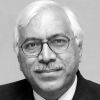Loose talk about poll body unwarranted
The Office of Profit row over the disqualification of 20 AAP MLAs has caused major 'embarrassment' to The Election Commission of India.

The term ‘office of profit’ is used in Article 102 (1)(A) of the Indian Constitution and bars any member of the Indian Parliament from holding an office that would give its occupant the opportunity to gain a financial advantage or benefit. It refers to a post under the Central/state government which yields salaries, perks and other benefits.
The origin of the concept of Office of Profit dates back to Britain where from 1701 till 1919, even legislators who were appointed ministers lost the right to sit as members in the House of Commons as they were entitled to salaries and perks. India adopted this concept through Articles 102 and 191 to ensure the independence of MPs and MLAs, respectively, from the government. To bypass the effect of these Articles, Parliament enacted The Parliament (Prevention of Disqualification) Act in 1959 exempting several posts from the purview of the Articles.
Coming to the case in question, the Aam Aadmi Party (AAP) government appointed as many as 21 MLAs as Parliamentary Secretaries on 13 March 2015 and attached them to various ministers. Prashant Patel petitioned the President on June 22, 2015, questioning the appointment as violative of article 191A of the Constitution. The very next day, the Delhi Assembly passed the Removal of Disqualification Bill 2015 with retrospective effect, and forwarded it to the President for post facto approval. After nearly a year, the President declined assent on June 7, 2016 and forwarded the petition to EC for its ‘opinion’ as mandated by the Constitution. While the petition was pending with the President, Rashtriya Mukti Morcha petitioned the Delhi high court (HC) that the appointments were illegal as the LG’s prior approval, which is mandatory for such appointments, was not taken. The high court upheld this contention holding the appointments void ab initio.
On January 19, 2018, the day before CEC A.K. Joti was to retire, the EC forwarded its ‘opinion’ to the President, saying that the MLAs in question had indeed held an office of profit and hence should be disqualified. The President promptly accepted the EC’s opinion within a day.
The EC’s recommendation garnered a lot of controversy. With the accused MLAs saying they were not given a fair chance to present their side of the story, to questions being raised about the credibility of the process through which the decision was taken. The case left in its wake a number of questions unanswered which AAP challenged in the Delhi high court. Some of the questions raised were – Did the EC give sufficient opportunity to the defendants to be heard as per the law of natural justice? Is the stand of EC justifiable that the petitioner is like a whistle-blower who cannot be cross-examined? Was there undue haste in giving the order by the chief election commissioner on his last working day? Was the action of EC Rawat who had recused himself to rejoin the proceedings without informing the parties legally correct? Was the act of the newly appointed commissioner who had not heard the case at any stage to join in the verdict valid?
The AAP, questioning the EC’s judgement, moved the Delhi high court where its plea was accepted on March 23.
The HC held that the disqualified AAP MLAs had not been given a fair hearing before the EC came to its decision. It also found fault with O.P. Rawat’s quiet return from recusal and Sunil Arora signing the EC order without being a participant in the hearing. This is what the high court ordered: “Opinion of the ECI dated 19th January, 2018 is vitiated and bad in law for failure to comply with the principles of natural justice. Accordingly, Writ of Certiorari is issued quashing the said opinion dated 19th January, 2018 and the consequent order/notification dated 20th January, 2018 for violation of principles of natural justice, namely, failure to give oral hearing and opportunity to address arguments on merits of the issue whether the petitioners had incurred disqualification and also on account of failure to inform that Mr. O.P. Rawat had expressed his intention to rejoin proceedings after his recusal and lastly because Mr Sunil Arora had not participated and no hearings were held before him”.
The Delhi high court judgment has brought some respite to the AAP government. The AAP government has further gone on to claim that the EC seems to be acting on the “whims and fancies of the central government”. While the HC judgment is being seen by some as an embarrassment for the EC, it would be unfair to raise questions regarding the credibility of the EC. The disqualified MLAs like all other citizens exercised their right and moved court for justice. I would like to point out that the AAP MLAs celebration seems to be premature. The court has only remanded the case and not given a verdict on the merits of the case. Any loose talk about the EC is unwarranted and must be avoided as those indulging in it would be appearing before the same commission and would find it embarrassing to face the commissioners.
Electoral reforms
- Strict implementation of election code of conduct
- Voter IDs for all eligible voters
- Limits on candidates expenditure
- No using official machinery for campaigning
- Voting age reduced to 18 years
- Use of EVMs
- Ban on seeking votes on the basis of caste and religion
- None of the Above (NOTA) became an option to the voters.
- Religious places such as mosque, churches and temples cannot be used for campaigns.
- Ministers, MPs, and MLAs of the ruling party cannot combine official visits with electioneering work.
